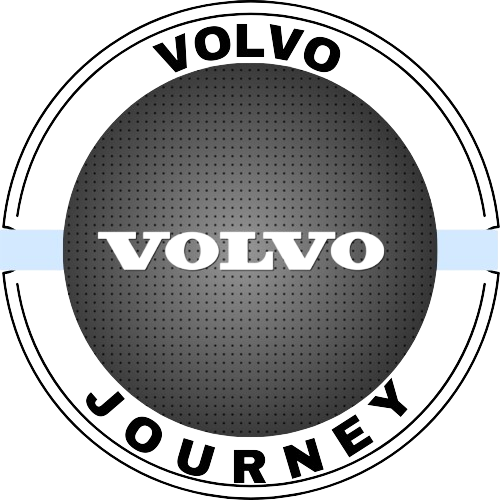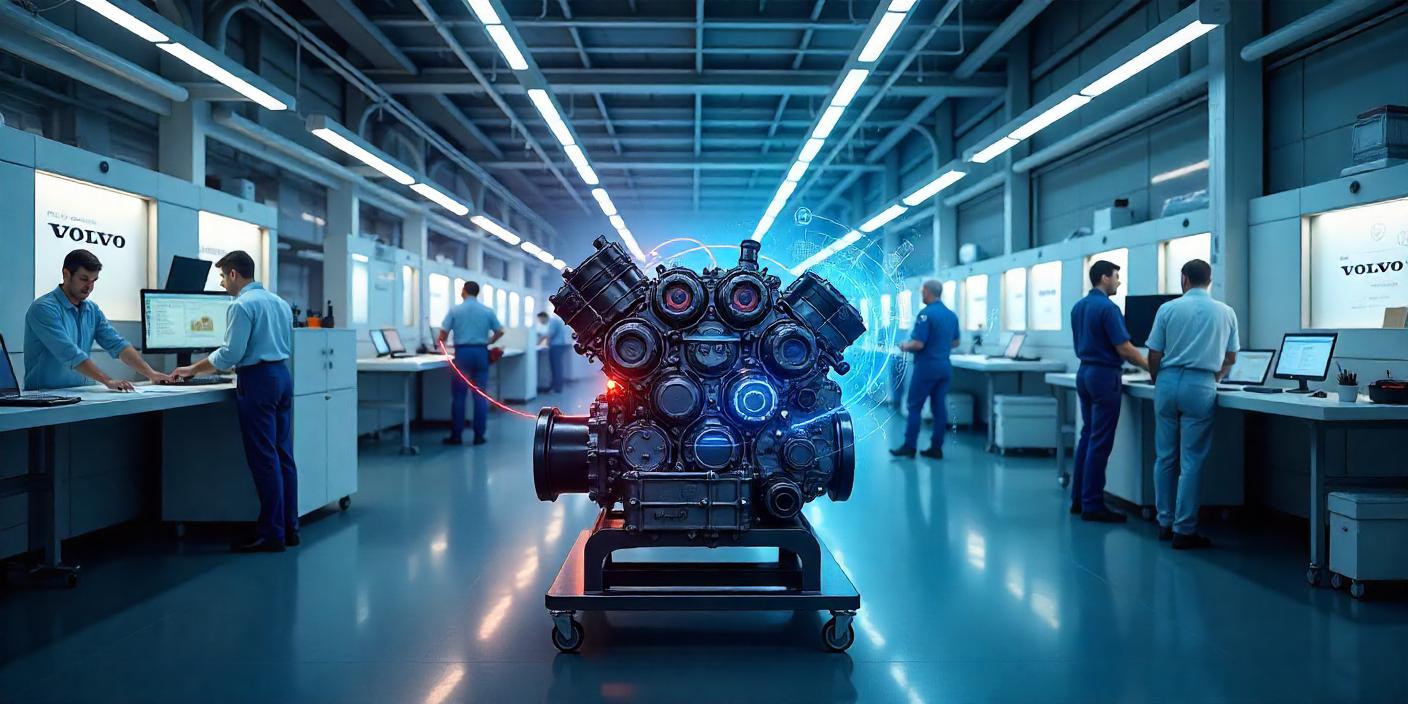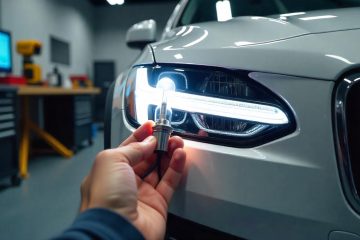Volvo has long been a name associated with safety, innovation, and enduring engineering prowess in the automotive world. Among the many aspects that contribute to Volvo’s reputation, its engines play a critical role. In this comprehensive article, we delve deep into the world of Volvo engine manufacturing to answer the recurring question: who makes Volvo engines? We explore the history, engineering strategies, partnerships, and the evolution of engine technology that has made Volvo synonymous with reliability and performance.
A Historical Perspective on Volvo’s Engine Heritage
Volvo’s journey into engine manufacturing is as storied as its commitment to safety and quality. Founded in the early 20th century in Gothenburg, Sweden, Volvo quickly established a reputation for building vehicles that were not only safe but also mechanically robust. In the early days, Volvo engines were designed and built in-house. The company invested heavily in engineering excellence and innovation, laying the foundation for decades of high-quality production.
Over time, Volvo expanded its technical capabilities and production methods. The in-house expertise developed during these formative years allowed Volvo to pioneer engine designs that balanced power, efficiency, and durability. As automotive technology advanced, so did Volvo’s approach to engine design—integrating new materials, improved manufacturing processes, and evolving environmental standards.
The Evolution of Engine Manufacturing at Volvo
In-House Innovation and Production
For many years, Volvo maintained a strong focus on in-house engine production. The company’s Swedish facilities were the hub of innovation, where engineers meticulously designed and refined every aspect of the engine. This approach ensured that each engine was a product of years of research and development, built to meet strict performance and safety standards.
The traditional in-house model enabled Volvo to have full control over the production process. From concept to assembly, every step was tailored to the company’s high standards. This commitment to quality not only cemented Volvo’s reputation for reliability but also fostered a culture of continuous improvement among its engineers.
Strategic Partnerships and Collaborations
As the global automotive landscape changed, so too did Volvo’s strategy. The question of who makes Volvo engines became more complex as the company began to embrace strategic partnerships with other industry leaders. One significant chapter in this evolution was Volvo’s relationship with the Ford Motor Company.
The Ford Era
In the late 1990s and early 2000s, Volvo Cars became part of Ford’s Premier Automotive Group. During this period, some of Volvo’s engines were designed and manufactured in collaboration with Ford. This partnership allowed Volvo to leverage Ford’s extensive manufacturing capabilities and global supply chain while still upholding its core values of safety and engineering excellence. Although Volvo maintained a distinct identity, the collaborative efforts helped streamline production and integrate advanced technologies that Ford had developed.
Transition to Geely
The acquisition of Volvo Cars by Geely marked another pivotal moment in the brand’s evolution. Geely, a major player in the global automotive market, has invested in modernizing Volvo’s production facilities and integrating innovative manufacturing techniques. This new phase has further blurred the lines regarding the question who makes Volvo engines, as production methods now combine legacy Swedish engineering with state-of-the-art Chinese manufacturing practices. Despite the changes in ownership, Volvo has remained steadfast in its commitment to quality, ensuring that every engine meets rigorous standards before it reaches the consumer.
Diversification Within Volvo’s Engine Production
It is important to recognize that Volvo’s engine production is not monolithic. The company’s approach differs between its passenger cars and the commercial vehicles produced by the Volvo Group. While Volvo Cars focuses on the design and manufacture of engines for consumer vehicles, the Volvo Group—responsible for trucks, buses, and construction equipment—operates under a different set of engineering and production guidelines.
Volvo Cars
For Volvo Cars, the engine is more than just a mechanical component—it is a critical element that defines the driving experience. Modern Volvo engines incorporate advanced technologies such as turbocharging, direct injection, and hybrid power systems. These innovations are the result of both in-house engineering and collaborative projects with other leading automotive manufacturers. Today’s engines are built to deliver a balance of performance, fuel efficiency, and reduced emissions, in line with global trends towards sustainable mobility.
Volvo Group
On the other hand, the Volvo Group has its own lineage of engine manufacturing that caters to the heavy-duty needs of trucks and construction equipment. These engines are engineered for power, durability, and reliability under demanding conditions. While the production processes for Volvo Group engines might differ from those of Volvo Cars, both divisions share a common commitment to engineering excellence and safety.
Unpacking the Question: Who Makes Volvo Engines?
When asked who makes Volvo engines, the answer is multifaceted. The production of Volvo engines is the result of a blend of in-house expertise, strategic partnerships, and a globalized supply chain that spans multiple regions and companies.
In-House Production Versus Outsourcing
Historically, Volvo was known for its in-house engine production. In Sweden, dedicated facilities were responsible for the research, design, and manufacturing of engines that powered Volvo vehicles. These facilities were at the heart of Volvo’s engineering identity, ensuring that every engine was a product of detailed craftsmanship and rigorous testing.
Today, while in-house expertise remains a core component of Volvo’s operations, the company also collaborates with external partners. These collaborations help Volvo to keep pace with technological advancements and meet the high demands of modern automotive production. In essence, the answer to who makes Volvo engines involves both Volvo’s own engineers and an array of trusted partners who work together to deliver high-quality engines.
The Role of Suppliers and External Partners
Modern automotive manufacturing is a global affair. Volvo, like many other carmakers, relies on a network of suppliers and partners to provide components and expertise that contribute to engine production. These partners may supply advanced materials, specialized components, or even assist in assembling certain engine parts. The integration of these external resources with Volvo’s in-house engineering efforts creates a product that benefits from a wide range of technical know-how and manufacturing excellence.
Global Supply Chain and Advanced Technologies
The globalization of the automotive industry has allowed Volvo to tap into the best resources available worldwide. By working with specialized suppliers and engineering firms, Volvo ensures that its engines incorporate the latest technologies and innovations. This approach not only enhances the performance and efficiency of Volvo engines but also ensures that they meet international environmental and safety standards.
For instance, the integration of precision components manufactured in high-tech facilities around the globe enables Volvo engines to achieve a level of performance and reliability that might not be possible through in-house production alone. The strategic partnerships that Volvo has forged over the years are a testament to the company’s commitment to quality and continuous improvement.
The Intersection of Engineering, Innovation, and Sustainability
In today’s automotive landscape, sustainability is more than just a buzzword—it is a driving force behind every innovation. Volvo’s engine manufacturing process is no exception. The company is deeply invested in developing engines that not only deliver exceptional performance but also minimize environmental impact.
Embracing Hybrid and Electric Technologies
One of the most significant shifts in recent years has been the move towards hybrid and electric powertrains. While traditional combustion engines continue to be refined and improved, Volvo is also at the forefront of integrating hybrid technologies into its lineup. This transition is indicative of the broader industry trend towards sustainability and reduced carbon emissions.
Volvo’s hybrid engines combine the efficiency of electric motors with the power of traditional engines, creating a synergy that maximizes performance while reducing environmental impact. This approach aligns with the evolving needs of consumers who are increasingly conscious of sustainability. The question who makes Volvo engines in this context expands to include not just the traditional engine manufacturers, but also the innovative teams developing hybrid and electric technologies.
Focus on Efficiency and Emissions Reduction
Advanced engine technologies such as turbocharging, direct fuel injection, and variable valve timing have allowed Volvo to significantly improve fuel efficiency and reduce emissions. These innovations are often the result of collaborative efforts between Volvo’s in-house engineers and external technology partners. By combining their strengths, these teams are able to produce engines that deliver high performance without compromising on environmental standards.
The global push for cleaner energy and stricter emissions regulations has further driven Volvo to innovate. In response, the company continues to invest in research and development, ensuring that every engine it produces is designed with both performance and sustainability in mind. This commitment to excellence is one of the reasons Volvo remains a trusted name in the automotive industry.
Engineering Excellence and Quality Assurance
The reputation of Volvo engines is built on decades of engineering excellence. From the earliest models to today’s high-tech powertrains, Volvo has consistently pushed the boundaries of what is possible in engine design and manufacturing.
Rigorous Testing and Quality Control
Every Volvo engine undergoes extensive testing to ensure it meets the company’s rigorous standards. This process includes everything from computer simulations and bench tests to real-world driving scenarios. By subjecting each engine to a wide range of conditions, Volvo ensures that only the highest quality products reach its customers.
Quality assurance is a cornerstone of Volvo’s production process. This commitment to reliability is reflected in the longevity and performance of Volvo engines, which are known for their durability and efficiency. For consumers, knowing that a Volvo engine has been subjected to such meticulous testing provides an additional layer of confidence in their vehicle’s performance.
Continuous Improvement and Innovation
The automotive industry is constantly evolving, and Volvo has made continuous improvement a central part of its philosophy. Engineers are always exploring new materials, technologies, and production techniques to refine engine performance. Whether it’s improving fuel economy, enhancing power delivery, or reducing emissions, every new engine is a step forward in automotive innovation.
This dedication to improvement is also evident in Volvo’s approach to collaboration. By working with external partners and suppliers, Volvo is able to incorporate cutting-edge technologies that might not be developed internally. This synergy between in-house expertise and external innovation has been key to maintaining Volvo’s position as a leader in engine manufacturing.
Addressing Common Myths and Misconceptions
Given the complex history of Volvo’s engine manufacturing, it is not uncommon for myths and misconceptions to arise about who really makes these engines. Let’s address some of the most common questions and clarify the facts.
Myth: Volvo Engines Are Solely Manufactured In-House
A common misconception is that all Volvo engines are built entirely within Volvo’s own facilities. While it is true that Volvo has a rich history of in-house production, the modern reality is more nuanced. Today, Volvo leverages a global network of partners and suppliers who contribute specialized components and advanced technologies. This collaborative approach ensures that every engine benefits from a combination of legacy expertise and modern innovation.
Myth: Outsourcing Compromises Quality
Some critics argue that relying on external partners might compromise the quality of Volvo engines. However, the rigorous quality control measures and high standards maintained across the entire production chain ensure that every component meets Volvo’s exacting criteria. The integration of external expertise has, in many cases, enhanced the overall performance and reliability of Volvo engines. The strategic partnerships are not a sign of diminished quality but rather a reflection of a globalized approach to automotive excellence.
Myth: The Ford Partnership Diluted Volvo’s Engineering Identity
During the period when Volvo Cars was part of the Ford Motor Company, there was some concern that Volvo’s unique engineering identity might be diluted. In reality, the collaboration allowed Volvo to access additional resources and technologies while preserving its core values of safety and performance. The partnership with Ford was managed in a way that leveraged mutual strengths, ensuring that the integrity of Volvo’s engineering was not only maintained but also enhanced through shared innovation.
The Future of Volvo Engines: Innovation and Sustainability
Looking ahead, Volvo continues to set the stage for the future of engine technology. With a clear focus on sustainability, performance, and safety, Volvo’s engineers are developing engines that will meet the demands of a rapidly changing automotive landscape.
Embracing Electrification and Hybrid Technologies
As governments and consumers alike push for cleaner and more sustainable transportation, Volvo is making significant strides in electrification. The development of hybrid powertrains represents a critical step towards reducing the environmental footprint of its vehicles. These advanced systems combine the efficiency of electric motors with the proven performance of internal combustion engines, resulting in powertrains that are both robust and eco-friendly.
The transition towards electrification is not an abrupt change but a gradual evolution. Volvo is carefully balancing its traditional engineering strengths with the new demands of the electric age. This balanced approach ensures that the question who makes Volvo engines now includes an expanded view—encompassing both the traditional combustion engine and the emerging hybrid powertrains that define the future of automotive technology.
Continued Commitment to Research and Development
Innovation is at the heart of Volvo’s engine manufacturing strategy. The company invests heavily in research and development to stay ahead of industry trends. This investment is evident in the continuous improvements in engine efficiency, power output, and emissions reduction. Volvo’s commitment to R&D not only reinforces its reputation for quality but also ensures that it remains a leader in the competitive automotive market.
Future advancements in areas such as alternative fuels, lightweight materials, and smart engine management systems are expected to further enhance the performance and sustainability of Volvo engines. These innovations will likely continue to push the boundaries of what is possible, providing consumers with vehicles that are as environmentally responsible as they are technologically advanced.
Maintaining High Standards of Safety and Reliability
Safety has always been a cornerstone of Volvo’s brand identity. This principle extends to engine manufacturing, where every design decision is influenced by a commitment to reliability and durability. The engines that power Volvo vehicles are engineered with a focus on long-term performance, ensuring that they remain dependable under a variety of driving conditions.
As automotive technology continues to evolve, Volvo is likely to introduce new features that enhance engine performance while maintaining strict safety standards. Whether it is through advanced diagnostics, predictive maintenance, or integration with vehicle-wide safety systems, the future of Volvo engines looks both innovative and secure.
Conclusion
The question who makes Volvo engines is a multifaceted one, reflecting the complexity of modern automotive manufacturing. From its humble beginnings in Sweden to its current status as a global leader in engine technology, Volvo has consistently combined in-house expertise with strategic collaborations to produce engines that are renowned for their quality, performance, and sustainability.
Volvo’s evolution from purely in-house production to a model that leverages global partnerships is a testament to its commitment to innovation. By integrating external expertise and advanced technologies, Volvo ensures that every engine is a result of both legacy engineering and modern advancements. Whether produced in state-of-the-art facilities in Sweden or through collaborations with major industry players, Volvo engines continue to exemplify the company’s core values of safety, reliability, and performance.
For automotive enthusiasts and industry experts alike, understanding who makes Volvo engines offers a window into the sophisticated processes that underpin one of the world’s most trusted automotive brands. As Volvo continues to innovate—embracing hybrid technologies, electrification, and sustainable production methods—the engines that power its vehicles will undoubtedly remain at the forefront of automotive engineering.
In a rapidly changing industry where quality, safety, and environmental consciousness are paramount, Volvo’s approach to engine manufacturing stands out. By blending traditional engineering excellence with the latest technological innovations, Volvo not only answers the question who makes Volvo engines but also sets a benchmark for the future of automotive propulsion.
Ultimately, the story of Volvo engines is one of evolution, collaboration, and a relentless pursuit of excellence. Whether you’re a dedicated Volvo owner or simply an admirer of automotive engineering, the legacy and future of Volvo engines serve as a compelling example of how a storied brand can adapt and thrive in an ever-changing global landscape.
This comprehensive exploration of Volvo engine manufacturing has provided insights into the company’s rich heritage, its strategic use of both in-house expertise and global partnerships, and its forward-looking approach to sustainability and innovation. As Volvo continues to redefine what is possible in automotive engineering, the legacy of its engines remains a testament to decades of dedicated craftsmanship and a vision for a sustainable future.
In addressing the central question—who makes Volvo engines—we have seen that the answer lies in a collaborative ecosystem where legacy meets modern technology. With a firm commitment to quality and safety, Volvo has ensured that every engine that bears its name is a reflection of its longstanding tradition of excellence and its unwavering focus on the future.
Whether you are seeking detailed knowledge for professional research or simply wish to understand the inner workings of one of the automotive world’s most respected names, the story of Volvo engines is a rich tapestry woven from decades of innovation, expert craftsmanship, and a deep commitment to creating vehicles that stand the test of time. The continuous interplay between tradition and modernity not only defines Volvo’s past and present but also paves the way for an exciting future in automotive technology.
As consumers become more environmentally conscious and technology continues to advance, the future of Volvo engines is set to be even more dynamic and innovative. The transition to hybrid and electric systems, alongside improvements in conventional engine designs, ensures that Volvo remains at the forefront of automotive engineering. This dedication to improvement and sustainability is what makes Volvo engines not just a product of manufacturing excellence but also a symbol of a forward-thinking approach that will shape the automotive industry for years to come.
In conclusion, the answer to who makes Volvo engines is not a simple one-dimensional reply. It is a reflection of a legacy that includes meticulous in-house development, valuable collaborations with major automotive players, and a relentless drive towards embracing new technologies and sustainable practices. With each engine produced, Volvo reinforces its commitment to excellence—delivering powertrains that are engineered to perform reliably under the most demanding conditions while paving the way for a cleaner, more efficient future.




